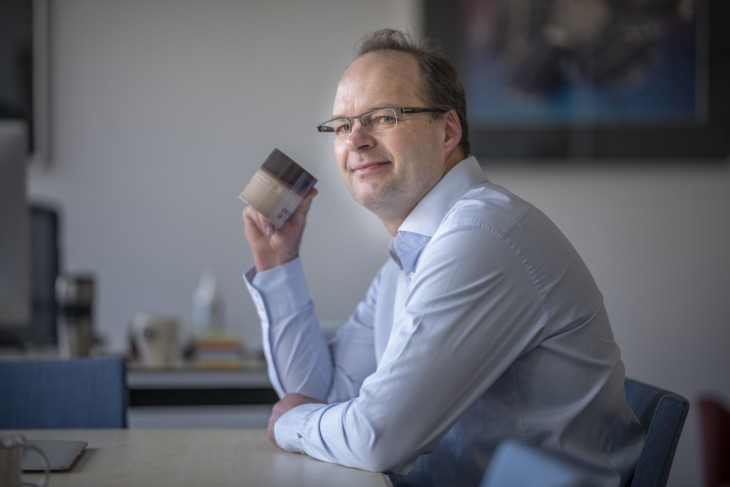"Designing a chip is like being a surgeon," Bindra says. “It has to be precise, demanding, and spot on. "It all starts with a clear goal: lowering energy consumption towards battery-free operation, improving signal quality, or boosting performance in tough environments. From there comes a mix of software simulations, schematic drawings, and meticulous layouts, all created with powerful computers and specialised tools. Once the design is finished, it is sent to a fabrication facility, often using ASML’s high tech lithography machines. Months later, the prototype returns, ready for lab testing.
What sets Bindra apart is his focus on extreme energy efficiency. Many devices, from pacemakers to sensors buried in bridges, run on batteries that wear out long before the technology itself does. “Replacing them is often impossible or prohibitively expensive,” he explains. His goal: chips that use so little energy they can last for years, even decades, without ever needing a battery swap.
Cool tech, literally
During his PhD, Bindra and his team set a world record: the lowest energy consumption ever achieved in converting analogue signals, like sound or temperature, into digital data that computers can process. That record still stands today.
“If your smart home hub ends up using more energy than your fridge, we have done something wrong,” he jokes. But the point is serious: designing chips that only work when needed and sleep the rest of the time could drastically cut energy waste and reduce e waste.
From farms to satellites
Bindra’s chips have found applications far beyond phones and laptops. He has worked on designs for satellites, automotive radar systems, and even agriculture. One striking project is Plantenna, which develops tiny, energy-efficient sensors that measure moisture, air pressure, and temperature directly on or near plants. They harvest their own energy and communicate wirelessly, meaning they can run autonomously for months or years without batteries.
“Imagine a handheld scanner that tells you which fruit is about to spoil, just by measuring water content,” Bindra says. “That is the kind of real-world impact we are after.”
Chips and geopolitics
Chip technology is no longer just about innovation; it is also about strategy. Around the world, countries including the Netherlands see chips as a national priority, aiming for greater independence from fragile global supply chains.
Bindra is helping shape international collaborations to strengthen chip research and education. As part of a Dutch innovation mission, he visited India to explore partnerships with universities, government and industry. “It is a global effort, and we need partners who share the vision,” he says. “Education, from vocational schools to universities, is essential to build the talent pool we need.”
Smaller, smarter and more sustainable
More devices mean more data, more demand, but hopefully also more sustainability. Bindra is convinced that chip technology is still at the very beginning of its rise.
And with researchers like Bindra at the helm, the future of chips, and the world they enable, looks smaller, smarter and a lot more sustainable.




